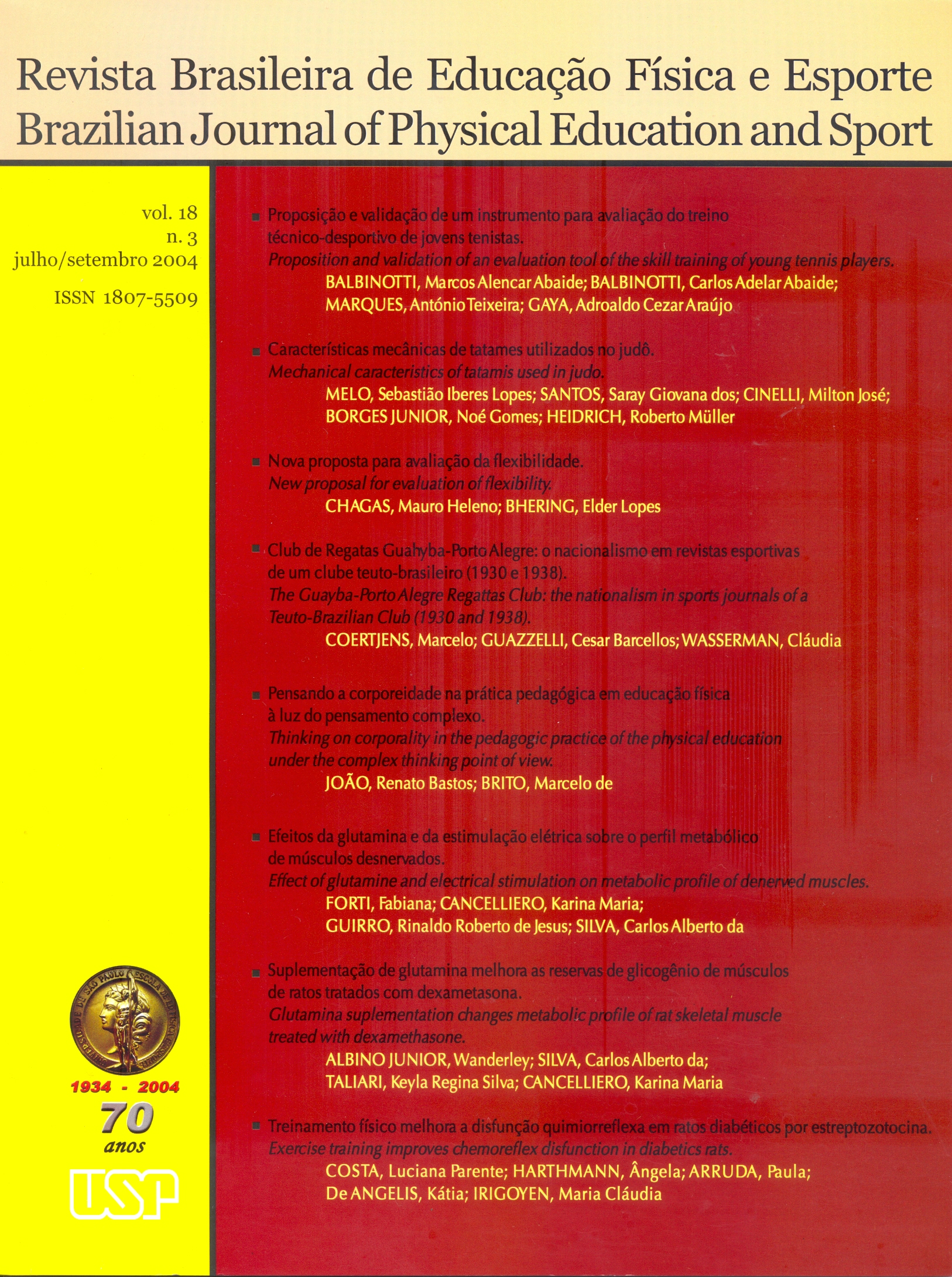Glutamine suplementation changes metabolic profile of rat skeletal muscle treated with dexamethasone
DOI:
https://doi.org/10.1590/S1807-55092004000300007Keywords:
Glycogen, Glutamine, Dexamethasone, Skeletal muscleAbstract
Glutamine suplementation changes metabolic profile of rat skeletal muscle treated with dexamethasone The use of synthetic glucocorticoid dexamethasone is due to its anti-inflammatory action. Many metabolic effects like lipolisys, proteolysis and insulin resistance are observed during treatment (SAAD et al.,1993). The purpose of this study was to evaluate the effect of glutamine supplementation in glycogen content of soleus (S) and gastrocnemius (G) muscles of rats treated with dexamethasone, Adult male Wistar rats, were divided in four groups (n = 6): Control, Treated with glutamine (GLU), Treated with dexamethasone (DEXA) and Treated with GLU plus DEXA. The treated groups received GLU (1 g/kg) and/or DEXA (1 mg/kg, IP) for five days. Afterwards, muscle samples were taken to evaluate the glycogen reserves (GR) by phenol sulfuric method. Immediately, blood samples were taken for biochemistry evaluation of plasmatic concentration of glucose, lactate, and aspartate aminotransferase (AST). The results showed that DEXA increased GR (100% in S and 64% in G, p < 0,05), but induced a reduction in muscle weight that shows a glycogenic and proteolitic action of corticosteroid. GLU increased GR (135% in S, 48% in G, p < 0,05) without changing muscle weigth. Muscle treated with GLU + DEXA showed GR increments (221% in S, 116% in G, p < 0,05) without changing muscle weigth. This treatment didn't promote glycaemic, lactate or AST plasmatic alterations. This study shows that supplementation with glutamine promotes changes in muscle metabolic profile and could interfere in dexamethasone action, and could be an important coadjuvant in the treatment of athletes submitted to glucocorticoid therapyDownloads
Download data is not yet available.
Downloads
Published
2004-09-01
Issue
Section
naodefinida
License
Todo o conteúdo da revista, exceto onde está identificado, está licenciado sob uma Licença Creative Commons (CC-BY)
How to Cite
Wanderley Albino, J., Silva, C. A. da, Taliari, K. R. S., & Cancelliero, K. M. (2004). Glutamine suplementation changes metabolic profile of rat skeletal muscle treated with dexamethasone . Brazilian Journal of Physical Education and Sport, 18(3), 283-291. https://doi.org/10.1590/S1807-55092004000300007


